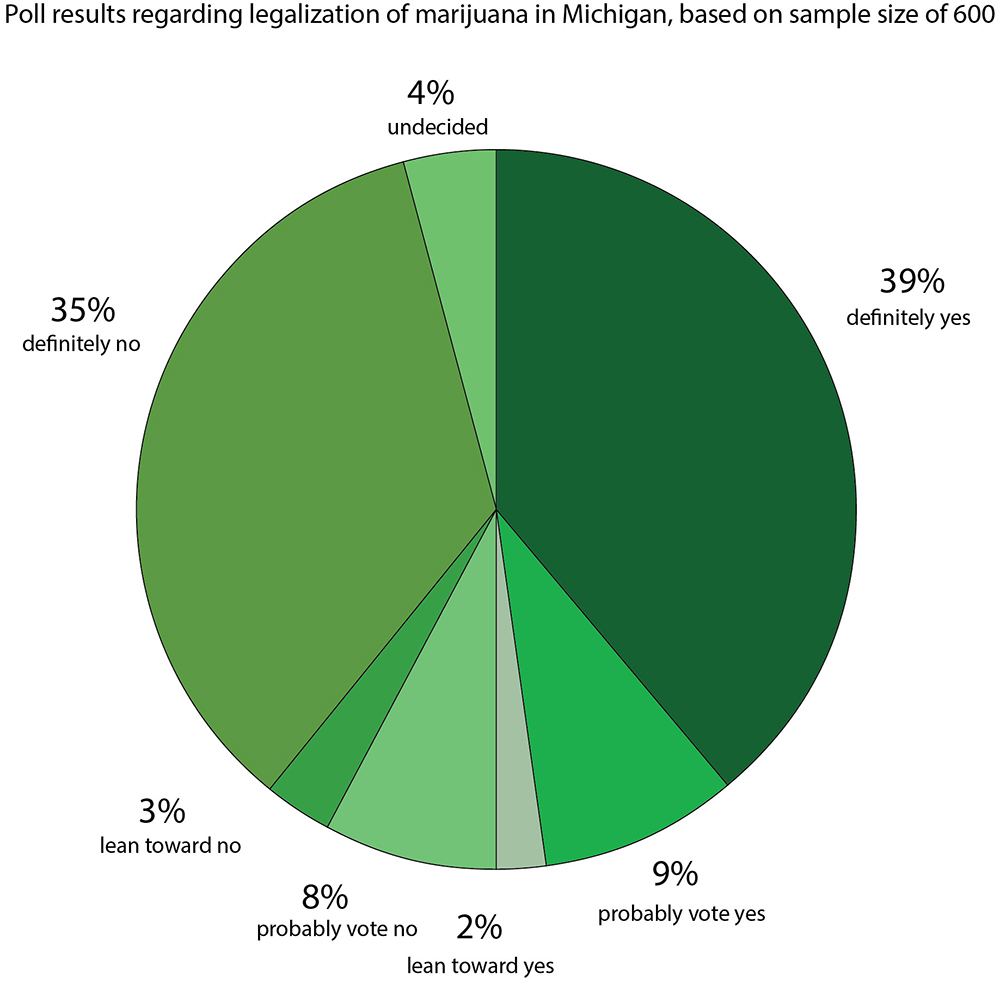Marijuana leaves legal experts confused, looking to state Supreme Court to clear the haze
GRAND RAPIDS, MI - You don't have to be stoned to have trouble understanding the hazy tapestry of laws and ordinances governing marijuana in Michigan.
Not that long ago, understanding marijuana law was easy. It was illegal and possessing it could land a first-time offender in jail for anywhere from 93 days to one year.
Now, someone pulled over by police on Grand Rapids' S-curve with marijuana in the car could face a spectrum of consequences depending on whether the cop is a Grand Rapids Police officer or a Michigan State Police trooper, and whether the driver has a Michigan medical marijuana card and if the card holder has the marijuana in the trunk or in the glove box.
Defense attorneys like Bruce Block, marijuana advocates, law enforcement and prosecutors like William Forsyth agree that following the law is a challenge for everyone - those seeking to enforce it as well as those seeking to adhere to it.
Grand Rapids passed its own ordinance changing possession of marijuana from a misdemeanor crime to a civil infraction.
But that law is now headed to the state Supreme Court because Kent County Prosecutor William Forsyth says the local ordinance cannot co-exist with a state law that calls for possession to be a crime punishable by jail.
Forsyth said he would be in favor of a law that would make first-time possession a civil infraction but he says that law needs to come from the state Legislature, not a mish-mash of local ordinances.
"Charitably speaking, marijuana laws are confusing and inconsistent," Forsyth said.
Meanwhile, Kent County continues to aggressively prosecute people accused of violating Michigan's Medical Marijuana Act, an act so popular it passed in every county in Michigan but still has resulted in jail for those who say they honestly tried to follow it,
including four employees of the Kent County Sheriff's Department.
It is hoped that the Michigan Supreme Court will clear up conflicting decisions coming out of the circuit and appeals court as it considers three cases expected to define whether people can use the Medical Marijuana Act as a defense against criminal prosecution.
These cases are seen as central to whether the
Michigan Medical Marijuana Acthas any real value at all when it comes to allowing people to possess marijuana. If the Michigan Supreme Court reverses the lower court ruling, dozens of convictions could be affected.
"You have people doing everything they can - but he law is a moving target," Block said. "Just give us some rules we can follow."

A shirt on display as part of the West Michigan Medical Marijuana Conference at the Frauenthal Center for the Performing Arts Nov. 7, 2014. (Cory Morse | MLive.com)Cory Morse
It is an area where the defense attorney and the county prosecutor agree.
"If you are legitimately trying to comply with the Michigan Medical Marijuana Act, it's not easy to do," Forsyth said.
Judges and law enforcement say the problems stem from a poorly-worded ballot initiative passed in 2008.
"Portions of the law are so poorly drafted and vaguely written that no one can easily determine a meaning," Forsyth says. "Unfortunately, its vagueness also provides a shield for those who attempt to use it as a means to engage in illegal marijuana trafficking."
Block says the problem is not with the law, but with law enforcement opposed to the very idea of legal marijuana use.
#grayscale'); -webkit-filter: grayscale(100%); background: url() -390px 0px no-repeat rgb(255, 255, 255);">The legal climate has not followed the will of ‘we, the people,’ - Attorney Bruce Block
"I don't think the act was very complex. It was pretty plain English," said Block, who represents one of the former officers charged with violating the law. "The Court of Appeals just made a mess of it."
Block says the will of the people in overwhelmingly passing the law is being ignored by police and prosecutors. Forsyth says his job is to enforce the law as it exists, whether or not he agrees with it.
The ruling by the state Supreme Court, likely to come this summer, is also awaited by city officials who are wondering how to address medical marijuana in their municipalities.
Wyoming had its restrictive medical marijuana provision
struck down by the state Supreme Court last year and has not put anything new in its place until it can receive direction from the court.
"Let's see how it all sorts out," said Wyoming City Attorney Jack Sluiter, adding that currently marijuana dispensaries are simply illegal in Wyoming until further notice.
But all of these legal wranglings could be solved in one fell swoop if voters here passed a provision like those in Colorado and the state of Washington, essentially legalizing marijuana.
It is an idea opposed by Forsyth, who said legalization would open a Pandora's Box of problems.
But it is seen as inevitable by Block, who said the wave of public sentiment is clearly moving in the direction of legalization, especially among younger voters.
"The legal climate has not followed the will of 'we, the people,'" Block said. "There's no doubt in my mind the genie's out of the bottle."
The idea is opposed by Forsyth, who said
Grand Rapids has already seen an increase in home robberies where people are growing marijuana in conformity with the ordinance. He says legalization would create a new set of problems for society and law enforcement.
An EPIC-MRI poll of Michiganders in December showed 50 percent of Michigan voters would be likely to support a future ballot proposal to legalize the possession or cultivation of marijuana by adults 21 years of age or older, and allow taxable sales at state-licensed stores.
That favorable number rises to 69 percent with respondents between the age of 18 and 34. Democratic men were the group most in favor at 70 percent, followed by independent men at 56 percent and Democratic women at 55 percent. The poll also found that 39 percent of Republican women were in favor, which is slightly higher than the 35 percent support among Republican men.
For what it's worth, the pro-marijuana publication High Times listed Michigan as one of eight states most likely to legalize marijuana next.
But currently, there is no serious push to put the question of legalization on the statewide ballot and pro-legalization groups seem more focused on a "city-by-city" approach.
"It's just like Prohibition in the 1930s. It's not a question of if, it's a question of when," Block said. "You can't hold back the tide."
http://www.mlive.com/news/grand-rapids/index.ssf/2015/02/marijuana_leaves_legal_experts.html





